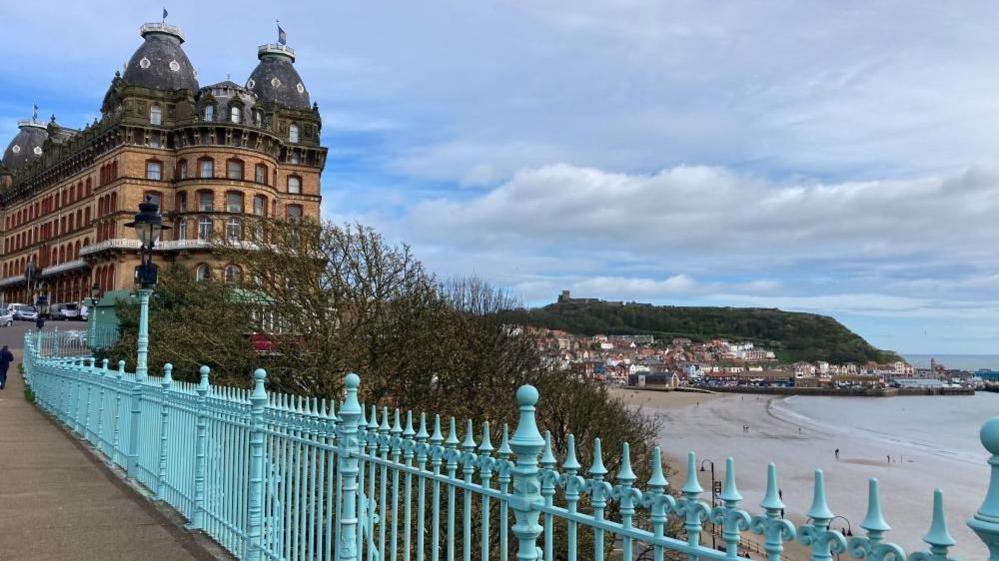The communities asking for more help to tackle crime
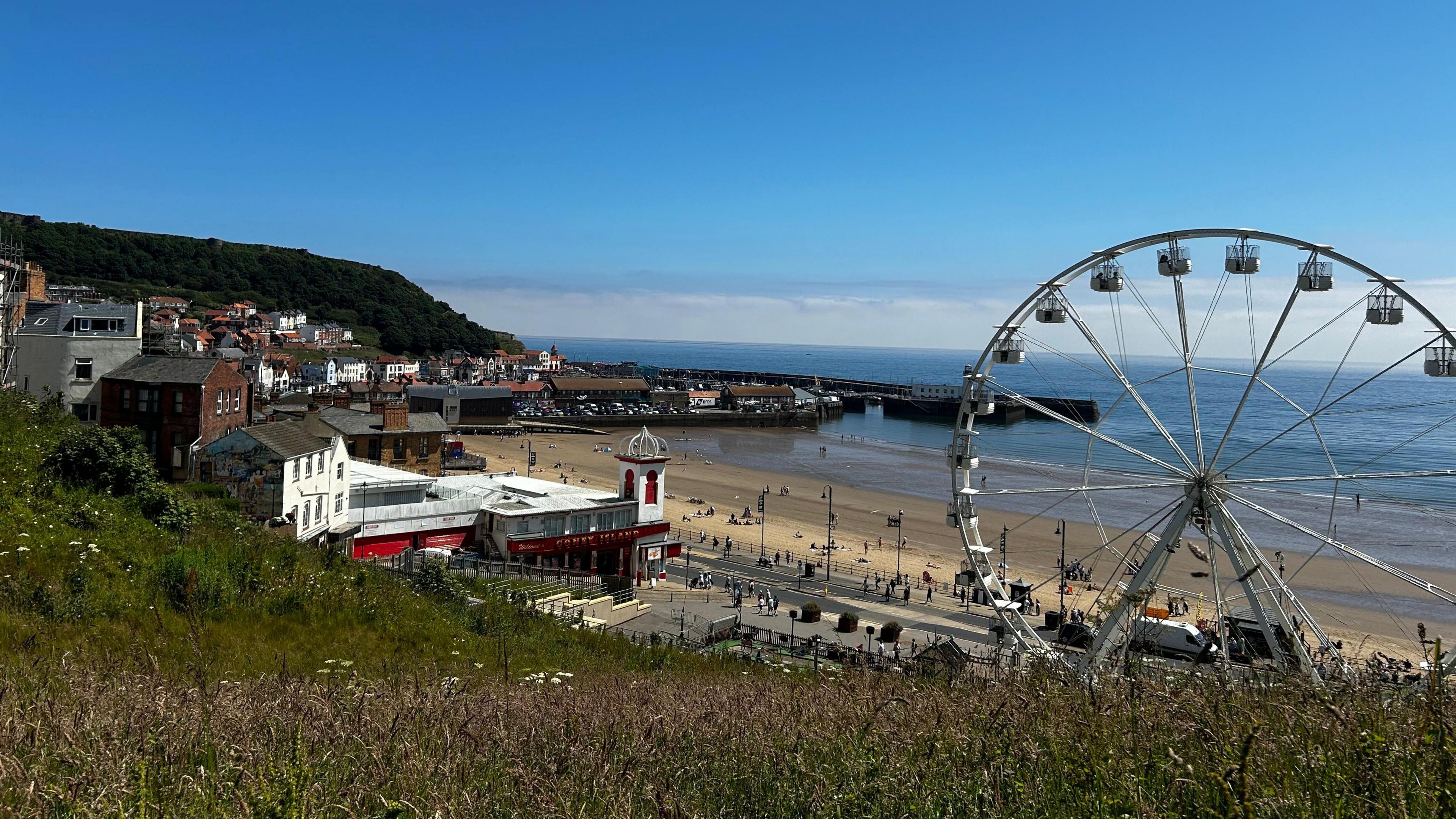
Scarborough is famed for its sands and fun - but some residents say crime is a perpetual problem
- Published
North Yorkshire is statistically one of the safest places to live in England, but some residents say their experiences with drugs and anti-social behaviour have left them feeling scared and helpless.
For many people England's largest county conjures up images of a trip to Scarborough for fish and chips, the verdant vistas of the Dales or the historic splendour of York with its Minster.
But some North Yorkshire residents say that, despite the statistics, crime is an almost everyday issue in their lives.
Claire (not her real name) lives in Scarborough and sun and sand are the last thing on her mind.
She lives on the Barrowcliff Estate, one of the most deprived spots in the county.
Earlier this year police announced they had introduced the Home Office’s Clear, Hold, Build strategy in the area to "reclaim and rebuild the neighbourhood" from serious and organised crime.
Claire says: "Politicians need to sort something out for the children that live in the estate, not just the tourists."
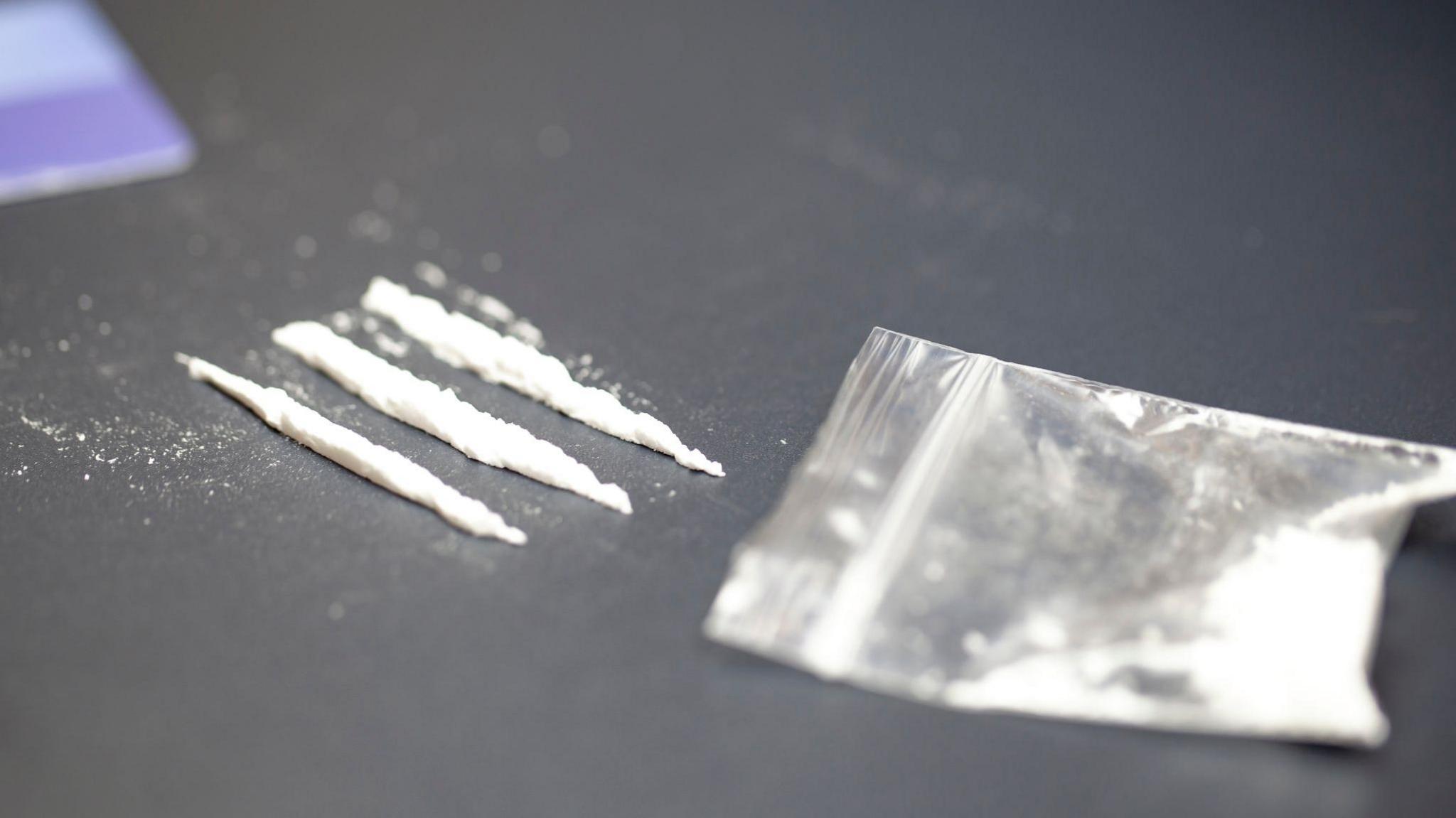
Claire says her son is addicted to cocaine, which is peddled by a string of drug dealers
One of her sons is currently addicted to drugs while another child regularly skips school.
She feels lost and doesn't know where to turn next.
"It's not every young person on this estate and it’s not just this estate.
"It’s all over the town and not just this town, all over the country," she explains about the problems.
Her biggest fear about her son's future? "That he might not have one," Claire says.
Her biggest request from any future government?
"They need to stop putting the effort into the tourist areas.
"I understand that’s how our town works, but think about the community that lives here.
"We need more help, we need help with housing, support towards charities instead of putting statues up in places."
'Infestation'
She says there is a police presence but that it doesn't seem to have an effect.
"The police basically just walk around the estate," she says.
"But I don't know what more they can do; once they get rid of one drug dealer another one comes along.
"It's like an infestation, basically."
Away from the coast in the York suburb of Haxby, residents tell us they are suffering from the blight of anti-social behaviour.
The people we spoke to there cited large groups of youths regularly causing trouble.
They have been caught on CCTV throwing rocks at cars and bricks through windows.
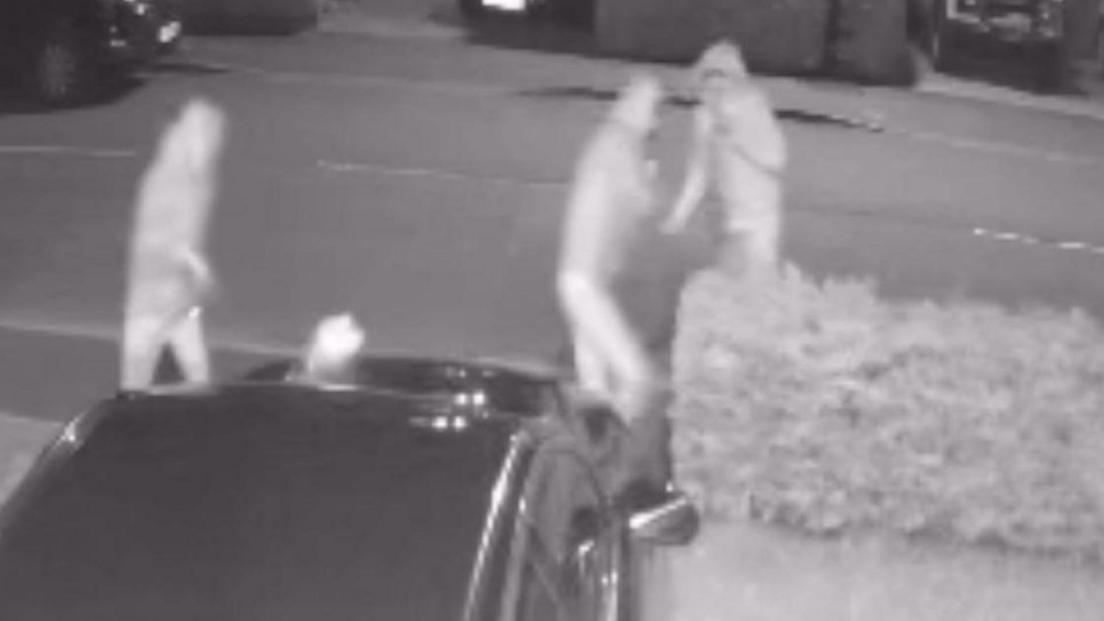
CCTV footage of youths vandalising cars in Haxby near York
One man says he felt it "harrowing" that the incidents were happening – and police needed to step up and deal with it.
"We've been scared to leave our cars on the drive, fearful that at any point there could be a brick coming through the window."
Cafe owner Tina Clayton, who runs Haxby Bakehouse, advises her staff to close the shop if they feel intimidated by anti-social behaviour.
She says: "If I've seen on social media that there have been issues, I often think, 'oh Lord, when I get to work will the windows have gone through, will there be a mess everywhere?'"
The Costa Coffee outlet next door has similar problems, with young people seen throwing tables and chairs around outside when they have been told they won't be served.
Manager Chris Vessey says: "If there are certain ones who try to come in and I turn them away, we will get issues out here.
"Recently we have had them throwing the chairs and tables all over, and using the takeaways that they have been getting, drawing on the windows with chicken and chips, throwing pop all over the windows.
“It's something we need to crack down on."
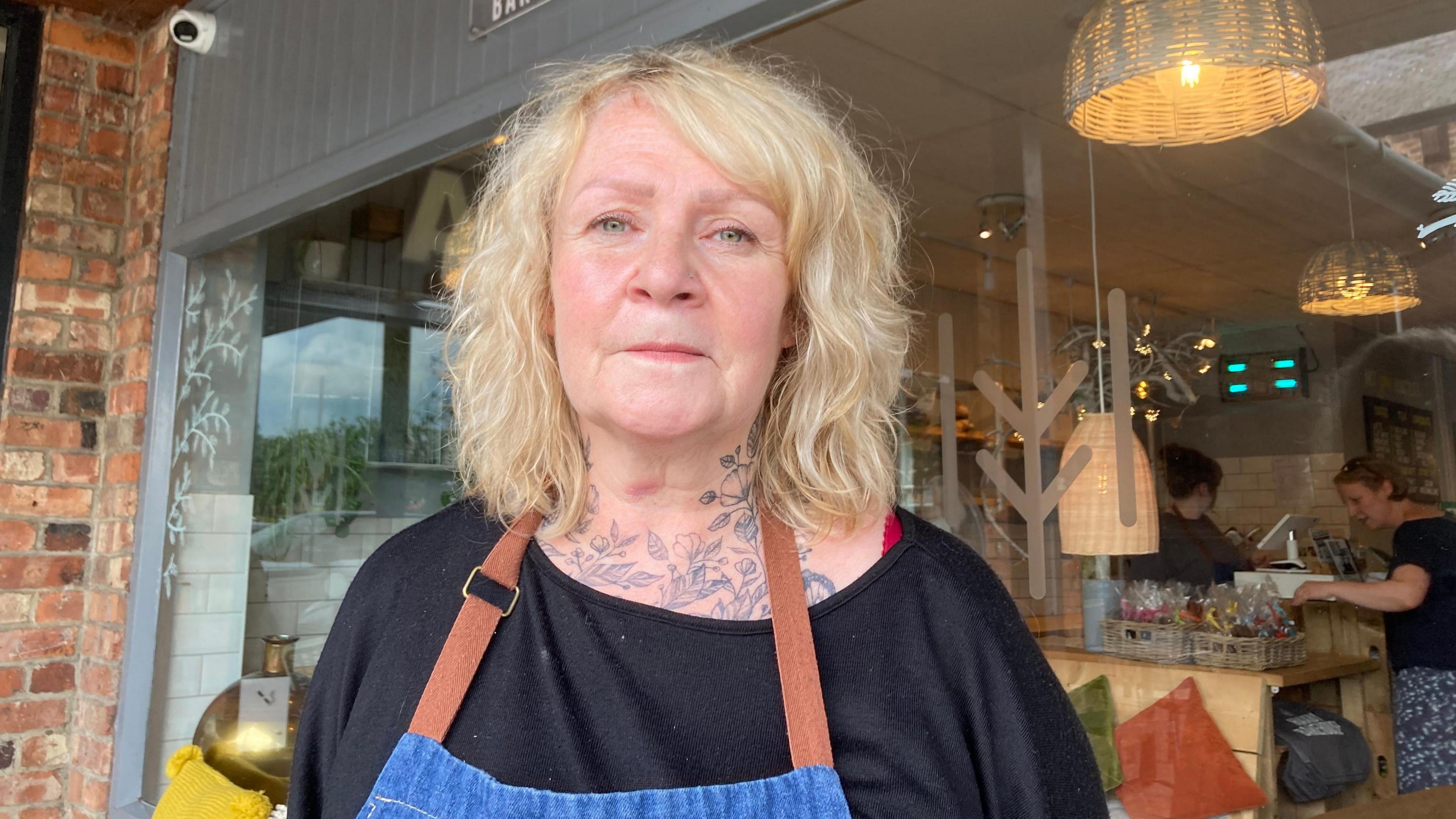
Haxby Bakehouse owner Tina Clayton says she advises staff to shut up shop if they feel intimidated
'Harrowing'
Although these incidents have been reported to police, residents and businesses say nothing has been done about it.
They want a stronger police presence to deter the youths, but they know this is a big ask when resources are limited.
Data shows that the two areas with the highest rates of reports of anti-social behaviour in our region between April 2023 and March 2024 are what were the constituencies of Scarborough and Whitby plus York Central.
Insp Lucy McNeill of North Yorkshire Police has worked in Scarborough for almost all of her 21-year career in uniform.
She notices that complaints tend to be reporting adults drinking on the street or bored youths behaving anti-socially.
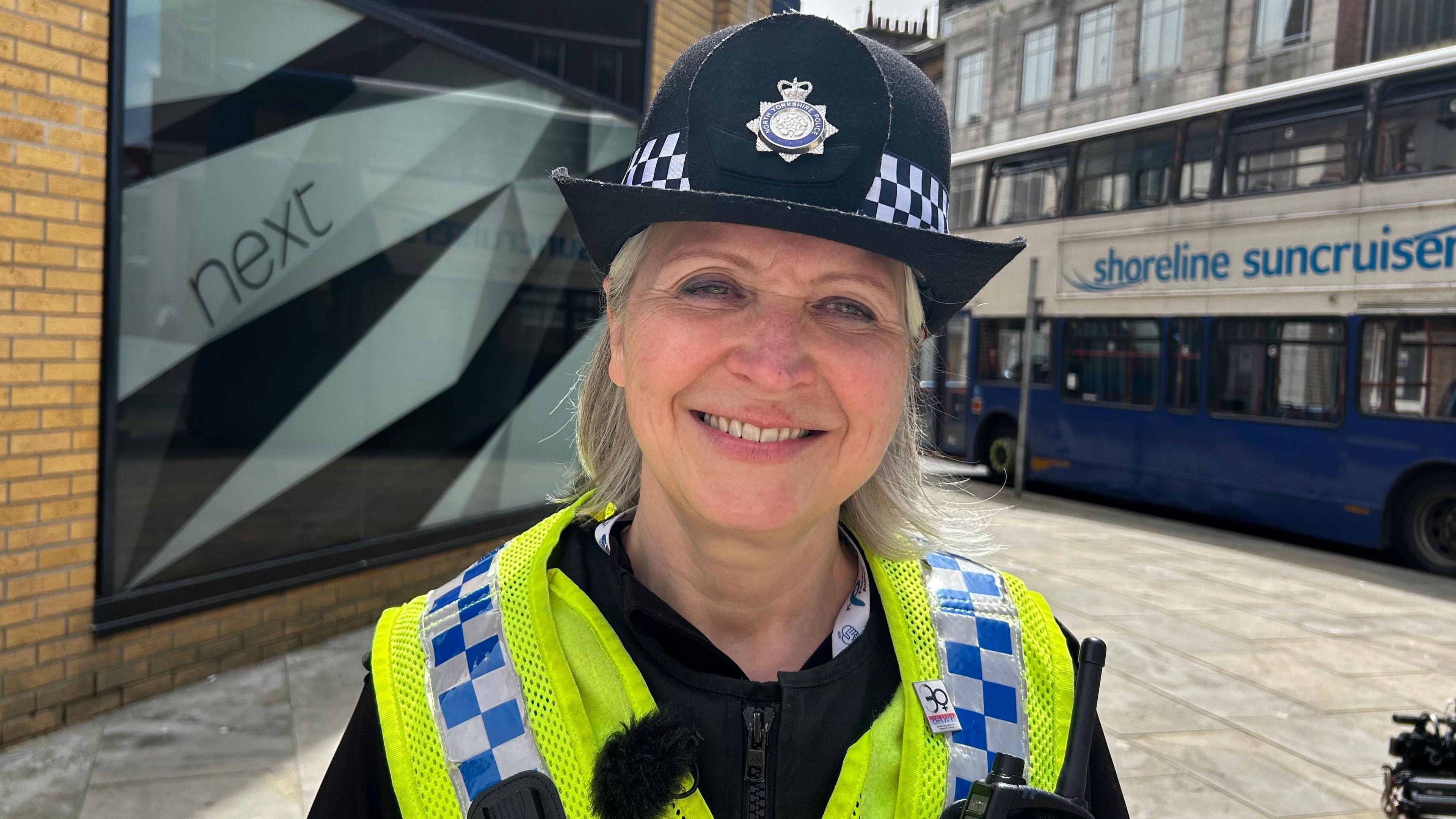
Scarborough police inspector Lucy McNeill says young people now go out later, but can't get into clubs and find they have nothing to do
She believes that tighter restrictions on underage entry to bars and nightclubs and changing habits have led to more young people spending time on the streets.
"I think the way people drink and choose to go out has changed as well.
“A lot of people drink at home and come out into the town later.
"I believe a lot of the clubs that kids used to go to aren't as freely accessible now, so that has changed."
The officer also believes that increased reporting of crime could be attributed to improved confidence in the police's response.
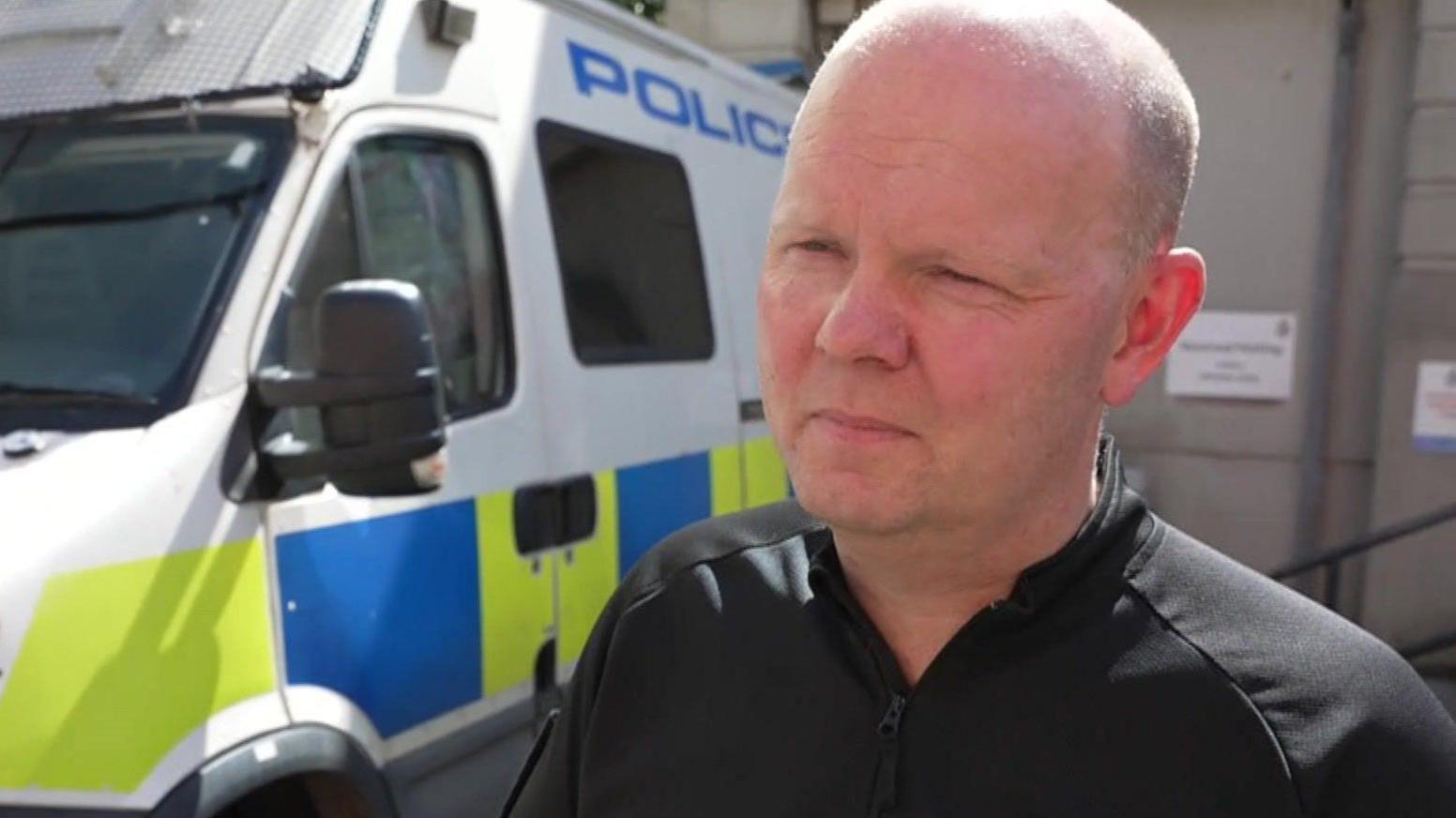
Chief Constable of North Yorkshire Police Tim Forber says communities working with police is key
North Yorkshire Police's Chief Constable, Tim Forber, accepts that there are issues with drugs and youth behaviour in areas of Scarborough and York.
He says one of the keys to reduce crime is communities and police working together.
"We absolutely recognise the impact that anti-social behaviour has on local residents," he explains.
"It is really important that we have neighbourhood policing teams that are fully attuned to the issues in those local areas and work with communities to do something about it.
"I take anti-social behaviour deadly seriously."
For Claire, the outcome of pledges by police and politicians can sometimes feel very far away.
“My son has lost quite a few friends from drugs and it still hasn’t made him open his eyes. I don’t know what else I can do, it's heartbreaking.
“Growing up on this estate is very scary,” she adds.
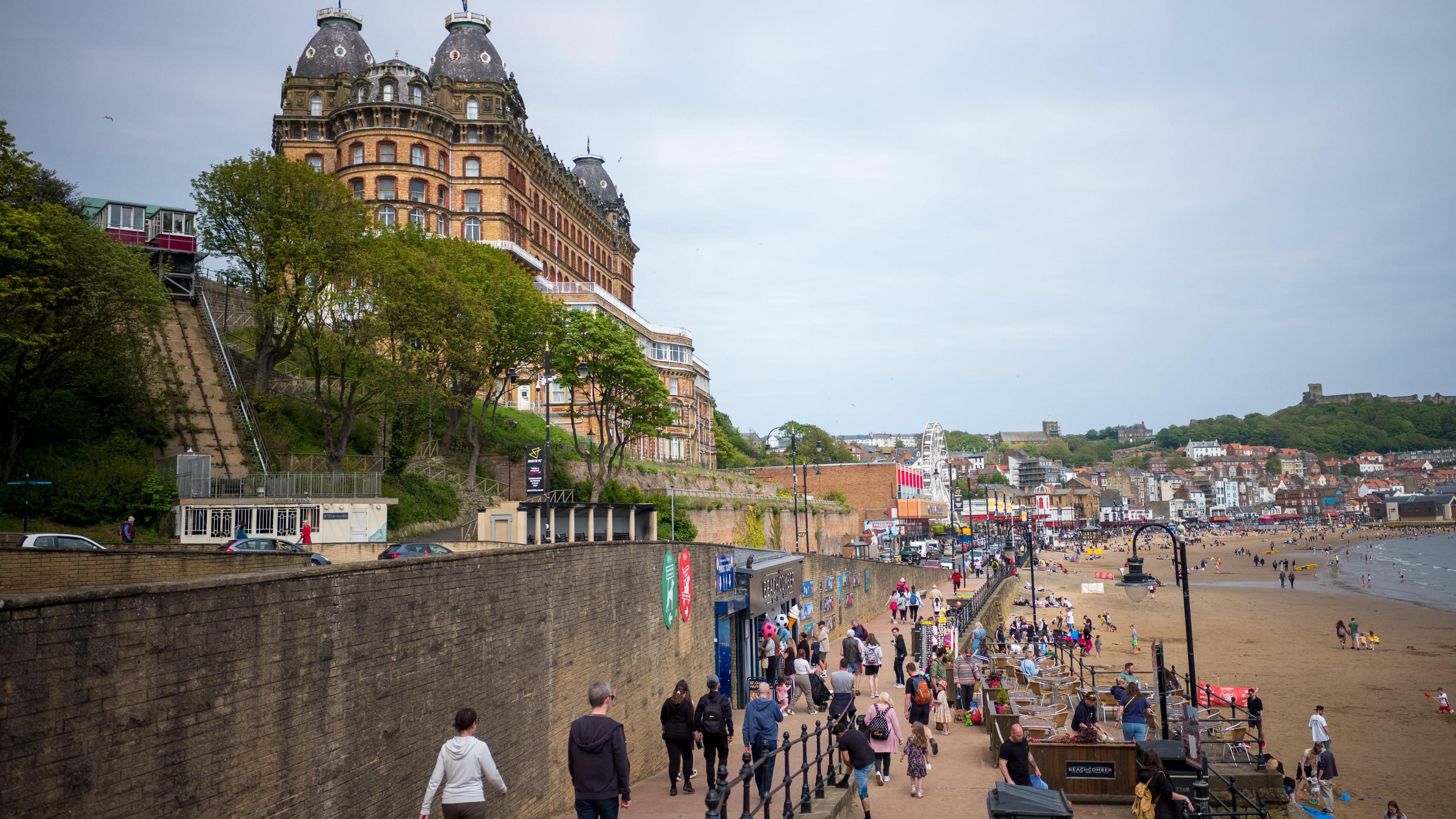
The authorities say Scarborough has become a hotspot for crime and drugs
During a live pre-election debate on Look North on Thursday, the parliamentary candidates for the Scarborough and Whitby constituency explained what they would do to tackle anti-social behaviour.
Roberto Weeden-Sanz, for the Conservatives, said: "It's clear we need to do more to support people of all ages who get addicted to drugs to get them off the streets, get them clean and back on their feet so they can meet their full potential.
"We've got £20m that the government has given us to invest in the town centre in Scarborough and making sure that goes towards tackling anti-social behaviour and other issues that affect young people is key."
Labour's Alison Hume said: "We'll crack down on persistent offenders.
"We'll give young people the chance to improve their lives through our new youth hubs, allowing them to work with mental health professionals and career advisers.
"We'll put social workers in A&E departments to stop children and young people falling into the clutches of crime groups."
The Liberal Democrats' Robert Graham Lockwood said: "Prevention is better than cure.
"We previously had crime and disorder officers in North Yorkshire and we had a very low crime rate in North Yorkshire compared to places in the big cities.
"We need a six-month funding youth opportunities programme, as it was in 1978, where young people can do any job they like for six months."

Lee Derrick of the Yorkshire Party said: "We've got to get back to the grassroots.
"The education system needs a complete overhaul. We're producing parrots. We've got our kids to learn (for) exams.
"We're not giving them vocational experience, testing their curiosity or giving them opportunities and options."
David Bowes of Reform UK said: "We'd have a zero tolerance approach to anti-social behaviour.
"Children and families don't want to be in the street with alcoholism and anti-social behaviour going on around them.
"We need more bobbies on the beat - 40,000 new officers in five years - and high-intensity training camps for young offenders."
Asa Jones of the Social Justice Party said: "Britain is broken and people have lost a sense of stake in our society.
"It leaves them more vulnerable to engaging in criminal activities.
"We need more police but we also need to invest in our criminal justice system to make sure we can prosecute crimes properly."
Follow BBC Yorkshire on Facebook, external, X (formerly known as Twitter), external and Instagram, external. Send your story ideas to yorkslincs.news@bbc.co.uk, external
Related topics
- Published12 March 2024
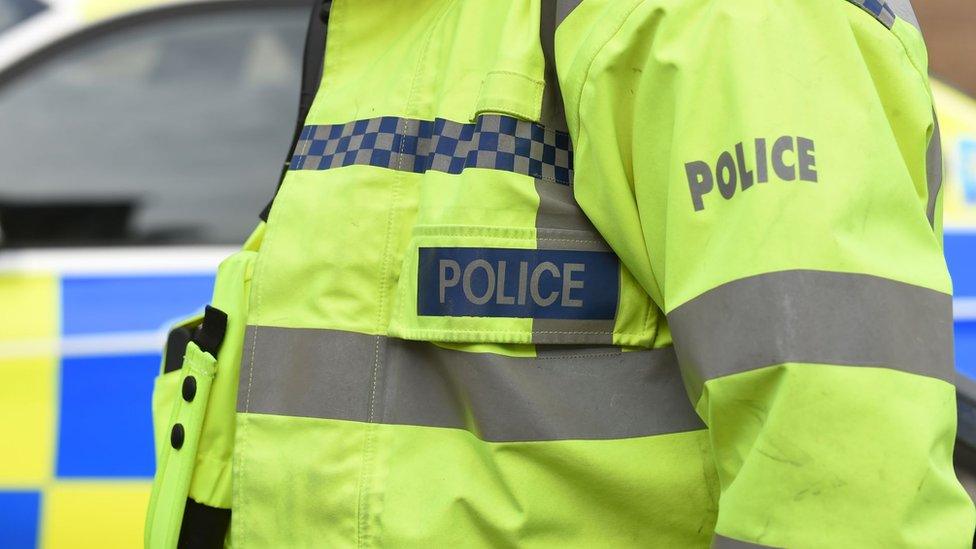
- Published25 March 2024
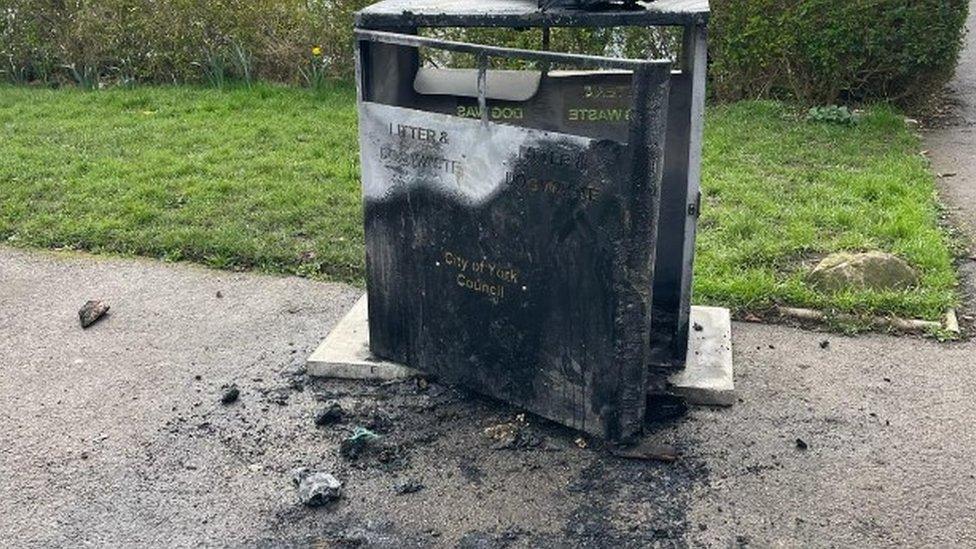
- Published7 June 2024
